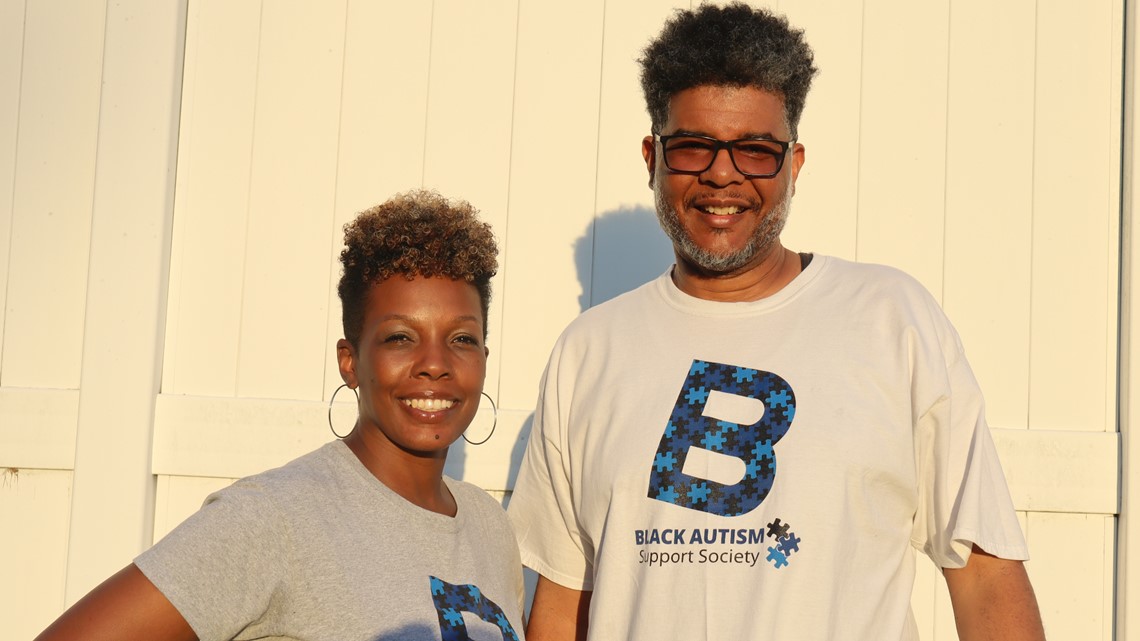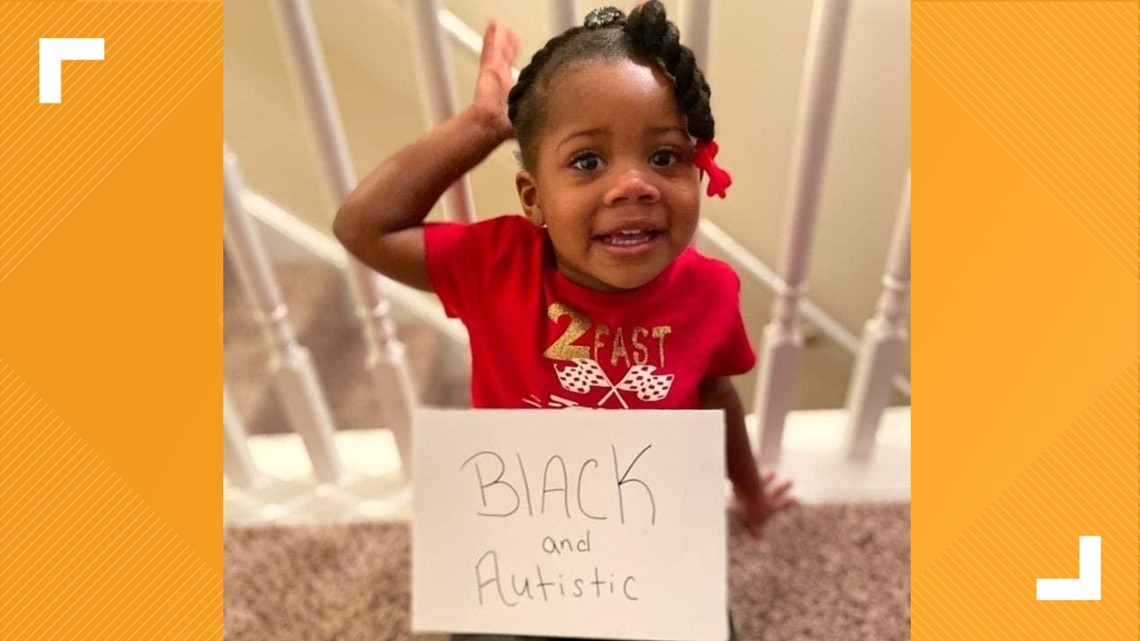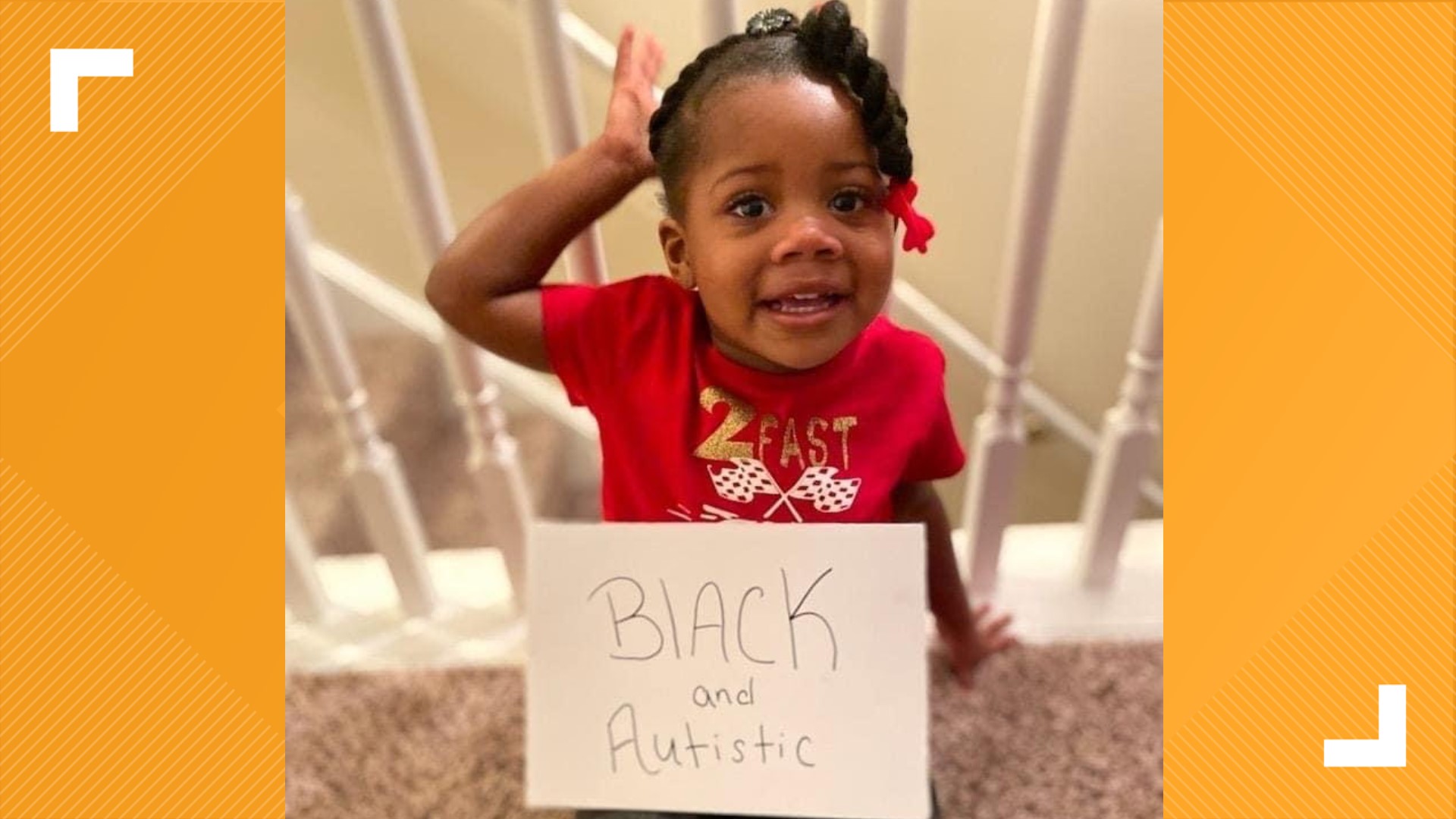INDIANAPOLIS — Autism Acceptance Month has been all about raising awareness and understanding what it means to be on the autism spectrum.
Experts agree the earlier the diagnosis, the better. However for Black children, that diagnosis is often significantly delayed.
It's why one Indianapolis mother and advocate is on a mission to help more families get the resources they need, sooner rather than later.
Kimacka Randle will be the first to say there's no perfect way to navigate an autism diagnosis.
"We have three children. All three have been diagnosed on the spectrum in some way or the other," Randle said.
Her kids are now 23, 18 and 12. The younger two were diagnosed as toddlers.


"We thought we were on an island by ourselves. We didn't have anybody in our family that was on the spectrum," Randle said. "It wasn't really talked about in the Black community, and so when we were able to connect with other families, it was like, "Oh, I found my tribe."
Randle and her husband started the Black Autism Support Society to connect with families with a similar experience. Though all of her children's diagnoses were different, they shared the reality that so many Black families with children on the spectrum face.
Nearly 1 in 50 children have autism.
A CDC study shows that the rates of autism among Black and white children are about the same, but African American children are typically diagnosed much later than white children. In one study, that diagnosis was almost two years later than their white counterparts.
Thankfully, a lot has changed.
"Ten years ago, we didn't know what to do with autism. Now, there are forms of autism that can be treated," said Dr. Luis Escobar, director of the Medical Genetics and Neurodevelopmental Center at Peyton Manning Children's Hospital in Indianapolis.
Escobar said he now he sees about 20-25 new referrals a week, some of the most he's seen in his 20-plus-year career. That's encouraging, he said, because it means more parents are seeking help, and sooner, which is crucial.
But Escobar knows the playing field still isn't level for everyone, especially for minorities.
"They don't have the opportunities to access those providers that will help them with the diagnosis and treatment," Escobar said.
That's why Randle said it's important to shed light on why so many Black children on the spectrum are routinely misdiagnosed, or not diagnosed at all. They include disparities in health care, lack of parent education and the stigma or fear of being labeled.
Randle is familiar with all three.
"Even my own mother didn't like saying that they had autism. She'd say they they were just 'gifted,'" Randle said.


But in breaking the stigma, Randle has helped her mother realize, "It's OK for them to have this because it gets them the help that they need."
Randle was able to get that help for her younger son and daughter much earlier than her oldest son.
And she hopes to help other families do the same.
You can connect with the Black Autism Support Society on the organization's Facebook page.

